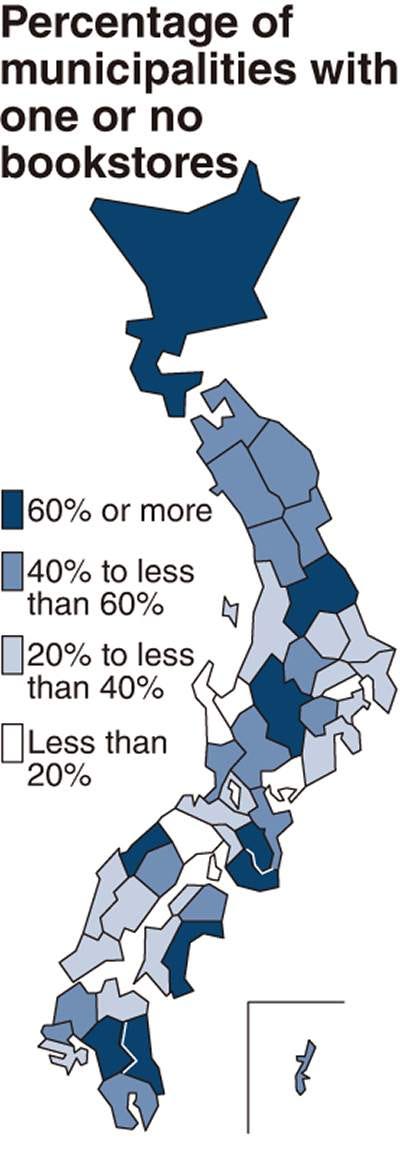A bookstore in Jinbocho, Tokyo’s main secondhand bookstore district
Dear readers, as you know, I love reading and books and have devoted a few stories to those subjects.
Japan has long been a country of readers. It is said that the literacy rate of adult males living in Edo (today’s Tokyo) at the end of the Edo period (1860s) exceeded 70%, far higher than those of London (20%) and Paris (below 10%).
When I moved to Japan in the early 1990s, commuter trains and the subway were full of people reading papers, magazines, books and manga.
Unfortunately, with the advent of cell phones and the smartphone, paper gradually disappeared. Commentators predicted that people would continue to read, only in a different way, but you only have to ride a train or go to a cafe to realize that now most people spend their time playing games, sending messages and checking their favorite social media.
Some time ago, I found an interesting and rather sad story on The Japan News, the English edition of the Yomiuri Shinbun, one of Japan’s main dailies.
According to this article, of the 1,741 municipalities in Japan, 456, or 26.2%, have no bookstore at all, according to a survey by the Japan Publishing Industry Foundation for Culture (JPIC).
When one includes municipalities that only have one bookstore, the number rises to 790, or more than 40% of all municipalities. With book sales continuing to fare poorly, bookstores have been disappearing from streets across the country, a serious situation that could rob people of places to interact with books.
The survey was conducted by gathering last September’s data from the Tokyo-based Japan Publishing Organization for Information Infrastructure Development (JPO), which comprises publishers, publication wholesalers and bookstore industry associations.
Rural areas in particular stood out for their lack of bookstores, with 56.1% of municipalities having no bookstores in Okinawa Prefecture, 51.9% in Nagano Prefecture and 51.3% in Nara Prefecture. In Hokkaido, 70.9% of municipalities have one or no bookstores.
A number of bookstores have closed down in recent years due to sluggish sales of physical books and magazines and the rise of online bookstores, among other reasons. According to the JPO, there were 16,722 bookstores across the nation in 2011, including those specializing in textbooks and providing other services to schools, government agencies and companies, while the number declined nearly 30% to 11,952 in 2021. The number of small- and medium-size bookstores appears to have suffered a particularly steep decline.
“Most bookstores will disappear in the next 10 years if the current situation continues,” said Kondo Toshitaka, chairman of JPIC. “In other countries, central governments take measures to protect bookstores from the perspective of cultural protection. In order to make that common in Japan as well, we must get the public to support such measures.”
To address the situation, a parliamentary group working to revitalize brick-and-mortar bookstores and protect Japanese culture, held a general meeting last Nov. 8 and compiled an interim report on the protection of bookstores.
The report proposes improvements to logistics such as reducing purchase returns and stock shortages, and launching a government-subsidized model project to distribute books with IC tags attached, which is expected to help prevent shoplifting. The report also calls for restricting effective discounts, such as free shipping services by online bookstores, and creating rules for public libraries about excessive purchases of the same book and the timing of when new books are lent out. The final report will be compiled in the spring of 2023.
Another secondhand bookstore in Jinbocho
Are you, like me, an addicted bookstore browser? Do you feel an adrenaline rush whenever you see all those dusty books gathered in one place?
Because yes, okay, booksellers have wholeheartedly embraced the online selling that keeps them in business. Yet bookstores provide something irreplaceable that we shouldn’t easily relinquish. And the chance of discovery is vital to the act of book-browsing,
In the end, bookstores are human places—they are extensions of the personalities of the men and women who operate them.







One of my readers wrote:
"Sadly, you can't stop progress. You can try to enforce things through legislation and so forth, but if people don't want to go into bookshops to buy books, then how can any government make them?
I've worked in the magazine/newspaper industry since 1986 and watched the gradual decline in sales (not to mention the number of bookshops and newsagencies along the way). It's just the inevitable way of things now that we have the internet.
Will hard-copy books and magazines vanish? I don't think so, not in my lifetime at least - but they'll become more niche and cater for older audiences till the audiences die out."
I'm afraid he is right, and I know it's a generation thing, but it sucks. It's also very sad that many youngsters are gradually losing this tactile experience of reality besides losing interest in the written word. I just hope books and bookstores will be like vinyl records making a comeback in the future.
Hi Gianni, may I know thr directions on how to get to Jinbocho? I am going to Tokyo this November. To browse second hand bookstores is one of my itinerary. Thank you